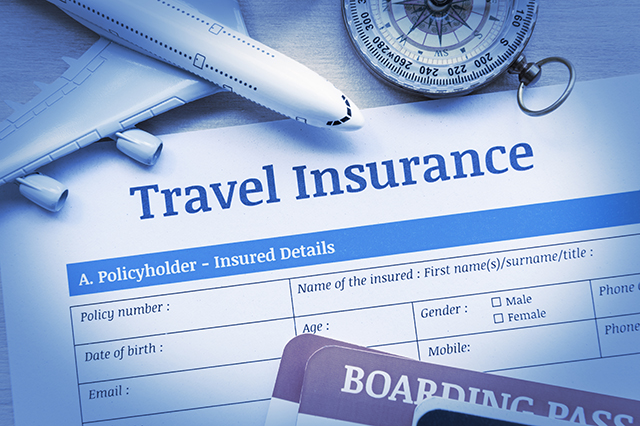Car insurance is mandatory. Life insurance is important – especially when you start a family. And no one questions how vitally important health insurance is.
But travel insurance? If you’re young and most of your trips have been weekends across state lines, you may even wonder…
What is travel insurance?
Truth be told, many (more experienced) travelers know what it is, but are either 1) not convinced of its necessity or 2) confused about what it can and can’t do. But according to Matthew Kepnes, globe-trotting expert and author of How to Travel the World on $50 a Day, sorting out travel insurance myths and misconceptions is essential: “Travel insurance is one of the most important things to buy for your trip,” he writes in his blog, Nomadic Matt. “No matter how long you are going away for it is a must have.”
First, let’s highlight what travel insurance can do: Like other types of insurance, travel insurance policies cover unexpected expenses. Depending on the coverage you choose, this can include trip cancellation/interruption, transportation (flights, connections, car rentals), lost or delayed luggage, medical emergencies and more. If you can’t afford to pay out of pocket for these things, you should buy insurance for your trip.
Myth 1: My credit card will cover me
Travel Professional NEWS, an online resource for travel industry professionals, pegs this as the number one myth: Though credit cards promote their travel protection benefits, they’re often limited: “While they may offer base coverage for lost or stolen items or trip cancellation (assuming your customer purchased their travel with the card in question), many have low coverage limits, and very few offer any sort of coverage for medical emergencies or evacuations abroad (often, the priciest contingencies travelers may face).”
Myth 2: My health insurance will cover me
Your insurer may pay “customary and reasonable” hospital costs abroad, but many other benefits don’t apply outside the country. And Medicare, with rare exceptions, doesn’t cover charges incurred outside the U.S. Medical evacuation (which sounds dramatic but may be simply a matter of not having the right specialists nearby) is not covered. For post-emergency care especially, travel medical insurance is a must.

Myth 3: It’s too expensive
The typical range for travel insurance is 5-8% of the total cost of your trip. (We’ve seen the range placed at 4-8 and 5-10%.) True, the higher the cost of your getaway the more you’ll pay – but the reverse is also true: If you can’t afford to be out of pocket for a trip cancellation or a tour operator that’s suddenly gone bust, trip insurance provides the necessary protection.
Myth 4: You never see good reviews for travel insurers
As Nomadic Matt points out, “Most people don’t write good reviews when they are helped.” In his experience, “People buy it, don’t read the exact wording, and make assumptions about coverage. So, when something goes wrong, they scream bloody murder when something isn’t covered or when lacking supporting documents to support their claim and write a nasty review online.” Read the fine print and there will be no surprises.
Myth 5: No one cover pre-existing medical conditions
Some will, some won’t. Read the policies carefully – and be sure you understand every word of it – including all the terms and conditions. Keep in mind the term “pre-existing” can be broader than you think: If a check-up in August revealed you have coronary heart disease and you have a heart attack a month later in Rome, your insurer may consider the heart disease a “pre-existing condition.” If you have any lingering doubts, by all means pick up the phone and ask to speak to a specialist at the companies you’re considering.
Note: Don’t put it off, advises Consumer Reports: “If you want a policy that will cover an existing medical condition, you typically must apply within 10 days to a month of booking the trip.”
Myth 6: I can get it later if I think I’ll need it
No. See #5. The longer you wait, the more likely something will arise that insurance might be necessary – and then it will be too late. Remember, this type of insurance is for the sudden and unexpected. If they’ve already named the hurricane, it’s too late to buy trip cancellation insurance.
You need to keep every receipt and every scrap of paper to make a claim.
Gotcha! This not a myth; it’s absolutely true. You do have to keep a paper trail: receipts, itineraries, medical records, police reports, you name it. Still, careful documentation is a small price to pay for the peace of mind (and financial protection) a robust travel insurance policy ensures.
Do you have any personal stories about how travel insurance has helped you out of a jam overseas or any tales of claims you were surprised to find were covered? Feel free to share any tips or insights you may have in the comments.
Your AAA travel advisor can help you choose a travel insurance policy that’s right for you. Learn more.














